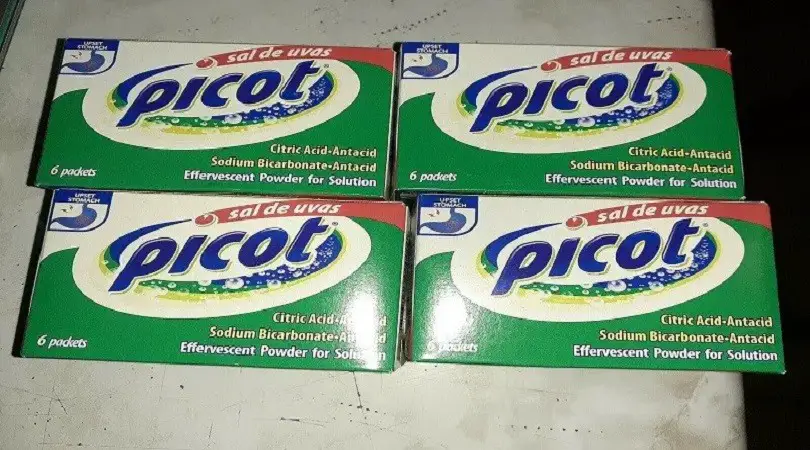Last Updated on January 6, 2025
Yes, you can have red wine vinegar when pregnant. It is safe to consume in moderate amounts.
Pregnancy is a sensitive time, and it is important to be conscious of what you eat and drink. Many women wonder if it is safe to have red wine vinegar during pregnancy. The good news is that red wine vinegar is generally considered safe to consume while pregnant.
It is made through the fermentation of red wine, which eliminates the alcohol content. However, it is important to note that moderation is key. While consumption of red wine vinegar in reasonable amounts is safe, excessive intake may lead to digestive issues. As always, it is advisable to consult with your healthcare provider before making any dietary changes during pregnancy.
The Potential Risks And Benefits
What Exactly Is Red Wine Vinegar?
Red wine vinegar is a popular ingredient in many dishes thanks to its distinctive flavor and tangy kick. It is made by fermenting red wine, allowing the natural sugars to convert into alcohol, and then further fermenting to transform the alcohol into acetic acid.
Red wine vinegar is commonly used in salad dressings, marinades, and sauces, adding a depth of flavor to a wide range of culinary creations.
Understanding The Nutritional Profile Of Red Wine Vinegar
Red wine vinegar may not be touted as a nutritional powerhouse, but it does offer some health benefits. Here is a breakdown of its nutritional profile:
- Low calorie: Red wine vinegar is significantly low in calories, making it a suitable choice for those watching their weight or following a calorie-controlled diet.
- Negligible fat and sugar: It contains negligible amounts of fat and sugar, making it a favorable option for individuals looking to limit their intake of these components.
- No significant protein or fiber content: While red wine vinegar does not provide significant amounts of protein or fiber, it can still be enjoyed as part of a well-balanced diet.
- Source of antioxidants: Red wine vinegar contains antioxidants, such as polyphenols, which may have potential health benefits, including reducing inflammation and protecting against certain chronic diseases.
While red wine vinegar offers some nutritional benefits, it is important to consume it in moderation, especially during pregnancy.
Potential Risks And Concerns
Red wine vinegar is a beloved staple in many kitchens, known for its tart and acidic flavor. But what about when you’re pregnant? Are you still able to enjoy this delicious condiment without worry? We’ll discuss the potential risks and concerns associated with consuming red wine vinegar during pregnancy.
So let’s dive in and find out if it’s safe or not.
Assessing The Alcohol Content In Red Wine Vinegar:
- Red wine vinegar is made from red wine, which does contain alcohol.
- During the fermentation process, the alcohol in the wine is converted into acetic acid, the main component of vinegar.
- While most of the alcohol evaporates during the production of vinegar, trace amounts may still remain.
The Effect Of Alcohol On The Fetus:
- Consuming alcohol during pregnancy can have detrimental effects on the developing fetus.
- Alcohol passes through the placenta and can interfere with the baby’s growth and development.
- It increases the risk of miscarriage, premature birth, low birth weight, and various birth defects.
Is It Safe To Consume Any Amount Of Alcohol While Pregnant?:
- The general consensus among healthcare professionals is that it’s best to avoid alcohol entirely during pregnancy.
- Even small amounts of alcohol have the potential to cause harm to the baby.
- There is no known safe level of alcohol consumption during pregnancy.
Does Cooking With Red Wine Vinegar Make A Difference?:
- Cooking with red wine vinegar can reduce the alcohol content further.
- The heat from cooking causes the alcohol to evaporate, leaving behind the flavor and acidity of the vinegar.
- However, it’s important to note that the exact alcohol content reduction may vary based on the duration and intensity of cooking.
While there is limited information on the exact alcohol content in red wine vinegar, it’s still recommended to err on the side of caution and avoid consuming it during pregnancy. Choosing alternative non-alcoholic vinegars, such as apple cider vinegar or white wine vinegar, can provide a safe and flavorful option.
Always consult with your healthcare provider for personalized advice regarding your dietary choices during pregnancy.
Safe And Nutritious Substitutes
Pregnancy comes with a list of food restrictions to ensure the health and safety of both the mother and the baby. One such concern is whether it is safe to consume red wine vinegar during pregnancy. While small amounts of red wine vinegar in cooking are generally considered safe, it is recommended to avoid consuming it directly or in large quantities due to its alcohol content.
But don’t worry! There are plenty of safe and nutritious substitutes available that can provide a similar acidic flavor to your dishes. Here are some options to consider:
Apple Cider Vinegar: A Healthier Option
- Apple cider vinegar is a popular choice as a substitute for red wine vinegar during pregnancy.
- It is made from fermented apples and has a milder flavor compared to red wine vinegar.
- Apple cider vinegar is also known to have several health benefits, such as aiding digestion and regulating blood sugar levels.
- Ensure you choose organic, unfiltered, and unpasteurized apple cider vinegar for maximum nutritional value.
Other Vinegars To Consider
- White or distilled vinegar: This vinegar is made from grains and is commonly used as a cleaning agent, but it can also be used in cooking.
- Rice vinegar: It is made from fermented rice and has a mild, slightly sweet flavor that works well in asian cuisine.
- Balsamic vinegar: Although it is not as acidic as red wine vinegar, balsamic vinegar can add a unique tang to your dishes.
- Lemon or lime juice: For a fresh and zesty alternative, try using lemon or lime juice in place of red wine vinegar.
Non-Vinegar Options For Acidic Flavor
- Citric acid: Available in powdered form, citric acid can be a suitable substitute for red wine vinegar.
- Yogurt or buttermilk: These dairy products can provide a tangy taste when used in dressings or marinades.
- Tamarind paste: Commonly used in indian cuisine, tamarind paste imparts a tangy and slightly sweet flavor.
- Tomatoes: Fresh or canned tomatoes can add a hint of acidity to your recipes, especially in sauces or stews.
Remember, always consult with your healthcare provider before making any significant changes to your diet during pregnancy. By experimenting with these safe and nutritious substitutes, you can continue enjoying the flavors you love while ensuring a healthy pregnancy journey.
Frequently Asked Questions For Can You Have Red Wine Vinegar When Pregnant?
Can You Consume Red Wine Vinegar While Pregnant?
Yes, you can safely consume red wine vinegar during pregnancy without any major concerns.
Is Red Wine Vinegar Harmful To The Baby?
No, red wine vinegar is not harmful to the baby as it doesn’t contain alcohol.
Are There Any Benefits Of Consuming Red Wine Vinegar During Pregnancy?
Yes, red wine vinegar can provide some health benefits during pregnancy, such as aiding digestion and promoting blood sugar control.
Can I Use Red Wine Vinegar In Cooking While Pregnant?
Absolutely! Red wine vinegar can be used in cooking while pregnant, adding flavor to your dishes.
Are There Any Risks Associated With Red Wine Vinegar During Pregnancy?
No, there are no known risks associated with consuming red wine vinegar in moderate amounts during pregnancy.
Conclusion
To summarize, it is generally safe to consume red wine vinegar in moderation during pregnancy. While it is true that the alcohol content is low and the vinegar undergoes a fermentation process, it is important to consider the overall diet and speak with a healthcare professional before making any dietary changes.
Red wine vinegar can bring a unique and tangy flavor to dishes, making them more enjoyable to moms-to-be. However, it is crucial to prioritize the health and well-being of both the mother and the unborn baby. It is recommended to opt for pasteurized versions of red wine vinegar, as they have undergone a heating process to eliminate any potential harmful bacteria.
Always remember that maintaining a balanced and nutritious diet during pregnancy is key. As with any food or beverage, moderation is the key to a healthy and enjoyable pregnancy journey.











